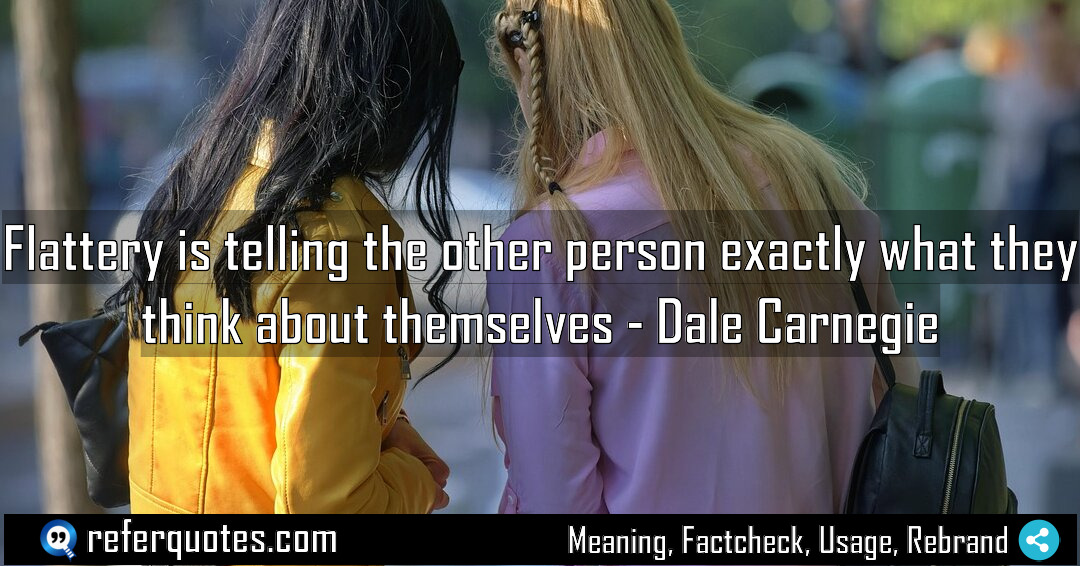Flattery is telling the other person exactly what they think about themselves. It’s a powerful insight from Dale Carnegie that reveals why some compliments feel authentic while others fall flat. Let’s break down why this principle is so effective in both life and business.
Share Image Quote:Table of Contents
Meaning
At its core, this quote means that the most effective praise isn’t about what *you* think is great about someone—it’s about validating the positive qualities *they* already believe they possess.
Explanation
Here’s the thing I’ve seen play out again and again. People have this internal self-image, this story they tell themselves about who they are. Maybe they see themselves as a visionary leader, a creative genius, or the most diligent person in the room. Now, when you come along and your “flattery” simply echoes that internal story back to them, it doesn’t feel like empty praise. It feels like recognition. It feels like truth.
It’s the difference between a generic “good job” and saying, “The way you structured that proposal was incredibly strategic—it showed real foresight.” If they pride themselves on being strategic, that comment lands deep. You’re not just complimenting an outcome; you’re affirming their identity. That’s the secret sauce.
Quote Summary
| Context | Attributes |
|---|---|
| Original Language | English (3668) |
| Category | Skill (416) |
| Topics | communication (196), flattery (3) |
| Literary Style | clever (7), insightful (43), observational (27) |
| Emotion / Mood | humorous (34) |
| Overall Quote Score | 82 (297) |
Origin & Factcheck
This gem comes straight from Dale Carnegie’s 1936 book, How to Win Friends and Influence People, specifically in the chapter “The Big Secret of Dealing with People.” It’s a cornerstone of his philosophy, born from his years of observation and teaching in the United States. You sometimes see it misattributed to other self-help figures, but its true home is right there in Carnegie’s classic work.
Attribution Summary
| Context | Attributes |
|---|---|
| Author | Dale Carnegie (408) |
| Source Type | Book (4032) |
| Source/Book Name | How to Enjoy Your Life and Your Job (53) |
| Origin Timeperiod | Modern (530) |
| Original Language | English (3668) |
| Authenticity | Verified (4032) |
Author Bio
Dale Carnegie(1888), an American writer received worldwide recognition for his influential books on relationship, leadership, and public speaking. His books and courses focus on human relations, and self confidence as the foundation for success. Among his timeless classics, the Dale Carnegie book list includes How to Win Friends and Influence People is the most influential which inspires millions even today for professional growth.
Official Website |Facebook | X | Instagram | YouTube |
Where is this quotation located?
| Quotation | Flattery is telling the other person exactly what they think about themselves |
| Book Details | Publication Year/Date: 1955 (compiled from earlier Carnegie works) ISBN/Unique Identifier: Unknown Last edition. Number of pages: Common reprints ~192–240 pages (varies by printing) |
| Where is it? | Chapter: The Truth About Flattery, Approximate page from 1948 edition |
